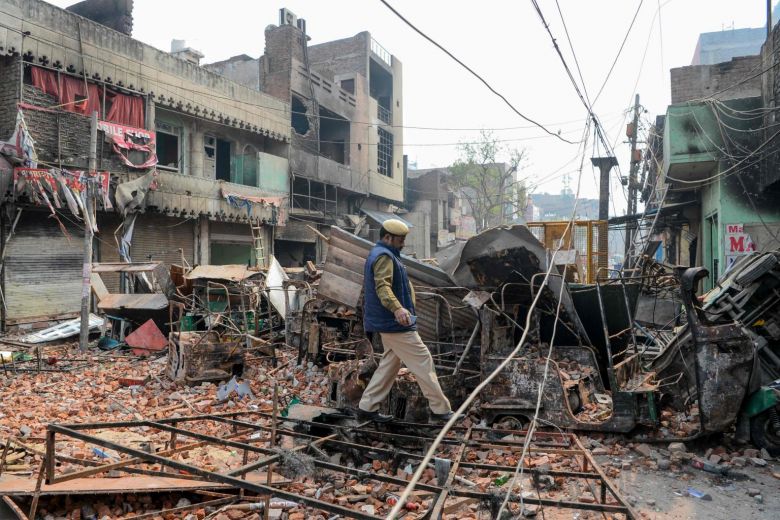
On October 5, 2020 the Karkardooma Court in Delhi granted bail to Noor Mohammad, who had been in judicial custody since April 2, 2020 in connection with the February 2020 Delhi violence. Mohammed was let off on bail upon furnishing a bond of Rs 20,000 with one surety each in the three cases related to rioting and vandalising shops in Khajuri Khas area.
This Bail order was passed by Additional Sessions Judge Vinod Yadav through video conferencing which also directed Noor to not tamper with evidence or influence any witness in any manner, to maintain peace and harmony in the locality and to appear before the court on the date of every hearing. He was also asked to install the Aarogya Setu app in his smartphone, provide his number to the SHO of Police Station Khajuri Khas and make sure it’s in a working condition to be contacted easily. Noor Mohammad was represented by Akhtar Shamim, while Special Public Prosecutor Manoj Choudhary led the prosecution team.
The first FIR was registered on the
The court observed that Noor had not been named by the 3 complainants in their respective statements and that it was only after 40 days of the vandalising incident, that they identified Noor at the Khajuri Khas Police Station, Delhi. “It also does not appeal to
Under section 141 of the Indian Penal Code, a minimum number of five people is mandatory to constitute an “Unlawful Assembly” but the Court observed that “the incident in the matter took place on 24.02.2020 and till date besides the applicant, the investigating agency has
The Court upbraided investigation agencies for their laxity given how the incident took place in February, and a chargesheet was in place, but no incriminating evidence against Noor was available on record even after months. “The investigating agency is blowing the trumpet that investigation of the cases are underway and remaining persons of the unlawful assembly have to be identified and arrested in the manner,” the court reportedly observed. The court, however, clarified that anything stated in the order should not be construed as expressing any opinion on the final merits of the cases, as they were at “pre cognizance/pre committal stage.”
In a case of similar fate, one Firoz Khan was booked under the rioting and mischief sections of the Indian Penal Code over the Delhi riots and had been in custody since April 3, 2020. On May 29, 2020 Justice Anup J Bhambhani of the Delhi High Court extended regular bail to him stating that prison is predominantly for convicts. The court observed, “Prisons are not for detaining undertrials in order to send any ‘message’ to society. The remit of the court is to dispense justice in accordance with law, not to send messages to society. It is this sentiment, whereby the State demands that undertrials be kept in prison inordinately without any purpose, that leads to overcrowding of jails; and leaves undertrials with the inevitable impression that they are being punished even before trial and therefore being treated unfairly by the system.”
The Court noticed that the Complainant had neither named or identified the Applicant Firoz and that the Prosecution relied on the statement of the alleged eye witness- a police constable to establish the presence of the Applicant on the spot at the relevant time. But the FIR clearly claimed that no police was present at the time of the incident. The Court also observed that while the offences were alleged to have been committed by an unlawful assembly, even after concluding investigation, only 2 people were named and identified out of hundreds of people. The court observed, “This court is conscious that ‘judicial custody’ is the custody of the court; and the court will be loathe to depriving a person of his liberty, in the court’s name, on the mere ipse-dixit of the State, when it finds no substantial basis or reason for doing so.” Firoz Khan was represented by Senior Advocate Rebecca John with Advocate Bilal Anwar Khan.
Violent communal clashes had broken out in North East Delhi on February 23, 2020 between Citizenship law supporters and protesters, leaving 53 people dead of which two thirds were allegedly Muslims, and hundreds of others injured.
The Bail Order may be read here:
Related:
Natasha Narwal of Pinjra Tod gets bail in Delhi riots case
Umar Khalid arrested by Delhi Police Special Cell
Bail to 21 accused of violence in anti-CAA protests in Mangaluru: SC